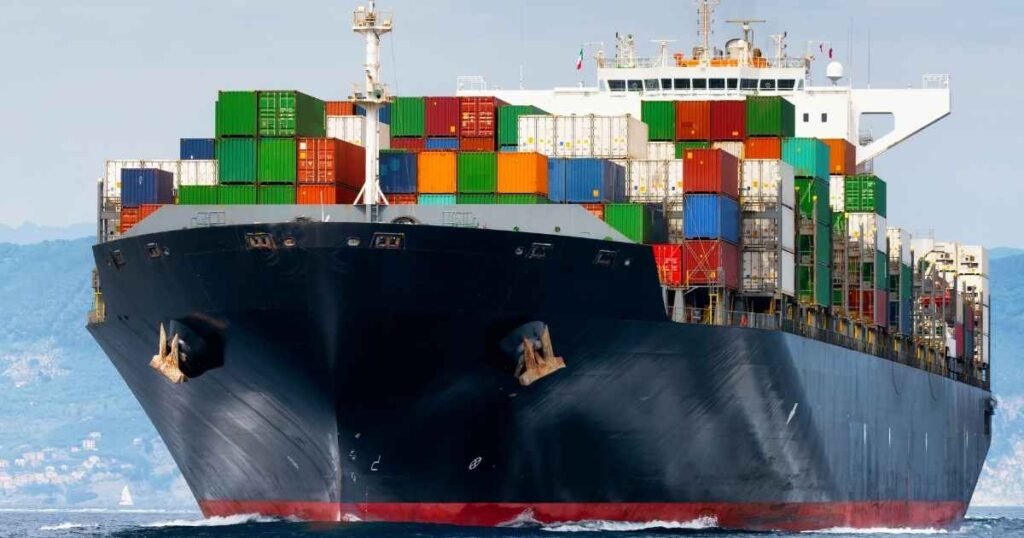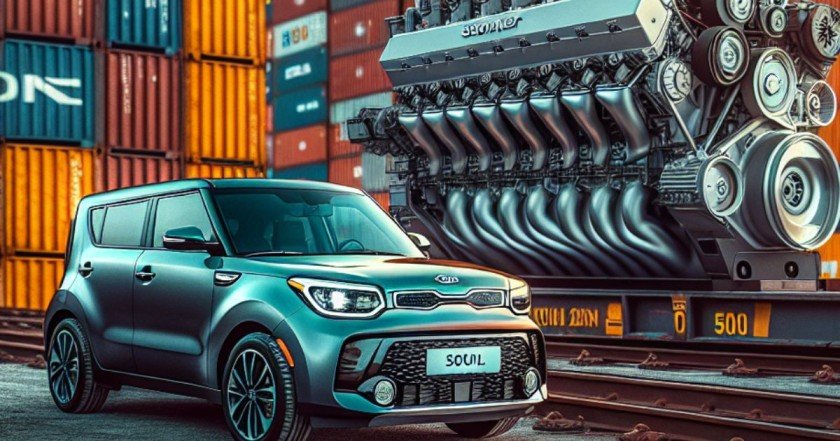Introduction to 2.0 Kia Soul Korea Export Container Engine
What Is the 2.0 Kia Soul Korea Export Container Engine?
The subjects of 2.0 Kia Soul Korea berkelium export container engines will typically be about reliability. This engine is manufactured in Korea, and the Kia production standards are high. This is important, as quality of construction is a big factor in long-term performance. The 2.0 engine is an engine for daily use. It maneuvers well in urban areas and remains steady when driven at highway speeds. There is smooth power, and the vehicle has a well-balanced feeling. Fuel consumption is quite moderate considering the size. You obtain consistent mileage without stressing your engine.
Thus making it suitable for normal driving as well. Another benefit that comes with the microwave oven The engine is quiet and doesn’t produce many vibrations. This enhances the driving experience. It comes properly packed as it is an engine for export containers in Korea. Such operations ensure that the engine is in a clean state before it can be utilized. It is a great option for those who may be in the need of a car as the engine gives the benefit of longevity and smooth transmission of the engine.
Why the 2.0 Kia Soul Korea Export Container Engine Matters in Global Trade
The 2.0 Kia Soul Korea Export Container Engine is important in trade because it connects reliability with fair cost. Many countries import it since it works well for personal cars and commercial fleets alike. Its steady demand shows the trust global buyers have in Korean auto engineering. For Korea, exporting this engine adds value to the economy and builds stronger ties with other nations. For buyers, it offers a safe choice since it meets international rules and fits many driving needs. In this way, the engine is not just a product but a key part of Korea’s growing role in the world market.
Must Read: How to Brand as a Writer Online and Avoid Failure
History of Kia Soul and Its Export Models
Evolution of Kia Soul Leading to the 2.0 Kia Soul Korea Export Container Engine
The Kia Soul was first introduced in 2008 and quickly caught attention because of its boxy look and roomy design. It was different, fun, and practical, which helped it stand out from other compact cars. Over the times, Kia kept perfecting the Soul with better safety, comfort, and technology. Each update made it more appealing to drivers in different parts of the world. As demand grew, stronger and smarter engines were added to meet global needs.
One of the best engines is the 2.0 Kia Soul Korea Export Container Engine. It provides a good combination of power and fuel economy. In addition to this, it is easy to maintain. The development of this engine is a move in the right direction as far as Kia is concerned. The engine met all the required standards and still managed to maintain the Soul within budget.
Global Popularity of Kia Soul Export Models
The Kia Soul did not take long to capture the attention of the outside world. In the US, Europe, and Asia, the car was loved for its distinct look, ease of handling, and surprisingly roomy interior. Its users were happy about the vehicle’s ability to handle both urban and long-distance drives equally well. Kia engineers did not fail to ensure that the car shipped outside the country complied with the requirements of the country’s vehicle standards and buyers, making the car even more reliable and trustworthy. One of the major reasons for the car’s worldwide acclaim is the “2.0 Kia Soul Korea Export Container Engine.”
It offers steady performance without high running costs, something that appeals to families, younger drivers, and even businesses using fleet cars. Thanks to this balance, the Soul grew into more than just another compact car—it became a reliable global choice with a strong reputation.
Technical Specifications of 2.0 Kia Soul Korea Export Container Engine

Core Features of the 2.0 Kia Soul Korea Export Container Engine
- 2.0-liter 4-cylinder setup built for both strength and fuel economy
- Produces about 147 horsepower, giving smooth daily performance
- Works with manual or automatic gear options, depending on the market
- Lightweight build helps reduce fuel use while adding durability.
- Emission system tuned to meet strict global rules.
- A simple design makes upkeep easier in different regions.
- Torque delivery is strong enough for city traffic and highways
- Handles long trips without losing stability or comfort
- Tested for export use under tough driving conditions
- Offers a mix of affordability, efficiency, and dependability
Performance Metrics and Reliability
The 2.0 Kia Soul Korea Export Container Engine is known for being practical yet dependable, which is why it stands out in export markets. With its 147 horsepower, it gives enough pull for everyday driving without becoming heavy on fuel. The engine responds quickly, making it reliable for city use and still steady on highways. Its torque makes uphill drives and carrying extra weight less of a struggle. What makes it trusted worldwide is its long-term reliability.
Built with strong components, it can handle years of use with only basic care. This is important in regions where service centers aren’t always easy to find. The engine also clears global standards for emissions and safety, which makes it easier for Korea to ship it worldwide. For numerous buyers, the 2.0 Kia Soul Korea Export Container Engine feels like the right balance — important enough to enjoy, effective enough to save plutocrat, and tough enough to last.
Manufacturing and Export Process from Korea
How the 2.0 Kia Soul Korea Export Container Engine Is Produced
The 2.0 Kia Soul Korea Export Container engine has been manufactured in Korea, with a major emphasis on its high level of quality. It begins with design processes that ensure the engine complies with the required standards in different parts of the world. The engine has been made from high-quality materials, along with machines, to ensure its durability. Additionally, human expertise has been used to thoroughly check the engines in order to eliminate flaws.
All engines undergo rigorous testing processes that involve fuel consumption rates, emissions, as well as durability. The engines are then packed into secure shipment containers to safeguard them during long travels. It is the blend of modern technology and human resource expertise that makes the whole process so efficient and accepted worldwide.
Korea’s Role in Global Auto Engine Exports
- Korea is one of the top exporters of bus machines worldwide.
- Known for combining modern technology with strict quality checks
- The export process includes durable packaging for long-distance shipping.
- 2.0 Kia Soul Korea Export Container Engine is a major part of shipments
- Engines meet global standards, making them easy to sell in many regions.
- Strong demand from North America, Europe, and Asia boosts exports.
- Korea’s auto industry supports trade links with multiple countries.
- Reliable production methods strengthen global trust in Korean engines.
- Government support and invention push the import assiduity forward.
- Kia engines help show Korea’s role as a leader in global auto trade.
Market Demand for 2.0 Kia Soul Korea Export Container Engine
Countries Importing the 2.0 Kia Soul Korea Export Container Engine
The 2.0 Kia Soul Korea Export Container Engine finds buyers all over the world because it’s reliable, fuel-friendly, and not costly to keep running. In North America, it’s popular with people who need an engine strong enough for highways but still light on gas. Europe also imports a good share since the machine passes tough emigration rules and matches the drive for greener buses .
In Asia, from Japan to China, to the Southeast Asian countries, it is appreciated by drivers due to several reasons including it being affordable. In some of the most inhospitable regions like the Middle East or Africa, it is also finding favor at a fast pace because of its ability to perform well even in roads with numerous bumps. All these go on to show that the engine is not specific to any kind of environment—almost all conditions favor it.
Trends in Global Automotive Export Markets
The growing demand for the 2.0 Kia Soul Korea Export Container Engine connects with bigger trends shaping auto exports worldwide. Buyers are choosing engines that give solid performance while keeping fuel use low, and this engine fits right into that shift. Countries also want options that meet global eco-standards, so having a clean-running engine adds to its appeal.
Fleet buyers are another driving force, as they need engines that last and don’t drain money on repairs. At the same time, shipping systems are improving, making it easier to move engines safely across long distances, which boosts trade further. With Korea staying strong in auto manufacturing, this engine keeps its place in the market by offering what global buyers want—strength, savings, and dependability.
Benefits of Buying 2.0 Kia Soul Korea Export Container Engine
- One of the biggest reasons people go for the 2.0 Kia Soul Korea Export Container Engine is reliability. It doesn’t give up easily, whether it’s daily city use or long drives on open roads.
- Fuel economy is another plus. You don’t feel like you’re spending too much at the pump, yet it still has enough pull to keep driving fun.
- Keeping it running isn’t a headache. The engine is simple to service, and parts don’t cost a fortune, which makes it easier on the wallet in the long run.
- Since it clears international safety and emission rules, it’s already accepted in many markets. That makes it a safe choice for buyers outside Korea.
- Durability is built into it. Even when used on tougher roads or in hot and cold weather, it holds up well without losing performance.
- It’s flexible too. Families, solo drivers, and even companies with fleets find it a good fit because it balances strength with efficiency.
- The fact that it’s shipped and trusted worldwide says a lot. Buyers know they’re not testing something new—it’s already proven.
- It gives you the right blend power, savings, and responsibility. That’s why people see it as a smart buy.
Challenges in Exporting 2.0 Kia Soul Korea Export Container Engine
| Challenge | What It Means for Export |
|---|---|
| Shipping Costs | Moving the 2.0 Kia Soul Korea Export Container Engine across borders can get pricey, especially with rising fuel and freight rates. |
| Customs Rules | Every country has its own paperwork and laws. A small mistake in documents can delay the shipment. |
| Currency Fluctuations | Exchange rate changes often affect final prices, making planning harder for buyers and sellers. |
| Market Competition | Other car makers also sell engines, so Kia has to keep prices fair without cutting quality. |
| After-Sales Support | Buyers abroad expect quick service and parts, but distance sometimes slows things down. |
| Global Demand Shifts | Trends change fast. A sudden dip in demand can affect how many engines get exported. |
Future of 2.0 Kia Soul Korea Export Container Engine
The future looks bright for the 2.0 Kia Soul Korea Export Container Engine, with more buyers in the global market seeking dependable yet budget-friendly engines. With increasingly strict rules on emission in most countries, Kia will most probably streamline this engine to make it cleaner yet maintain its strength on the road. From its current unique blend of power, fuel efficiency, and ease of maintenance, this could already be considered one of the finest in its class. Smarter fuel use or even improved durability could be part of updates as new technology arises. Already planning for the next several years, this engine is sure to stay significant to Kia exports.
For more informative and interesting articles visit: royallmagazine.com
Frequently asked questions (FAQs)
1. Why do people like the 2.0 Kia Soul Korea Export Container Engine?
Because it’s strong, easy to handle, and doesn’t need too much upkeep.
2. Is it good on fuel?
Yes, it gives decent mileage while still having enough power for daily use.
3. Where is it mostly sent?
It’s mainly exported to North America, Europe, and some Asian countries.
4. What’s the main benefit of buying it?
It lasts long, runs reliably, and parts are not hard to find.
5. Does it meet international rules?
Yes, it’s made to match global safety and emission standards.
Final Thoughts
The 2.0 Kia Soul Korea Export Container Engine has proven to be more than just another car part. It reflects Kia’s effort to create something reliable, efficient, and ready for global markets. From its smooth performance to low upkeep, it continues to win trust among drivers worldwide. The engine is also a strong symbol of Korea’s role in the auto industry, showing how quality and innovation can travel across borders. In the future, demand is likely to grow with people seeking engines that balance power, fuel savings, and long-term value.



